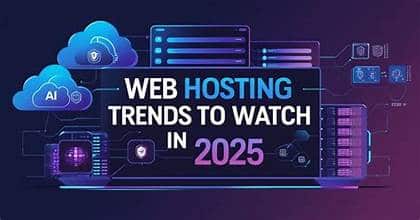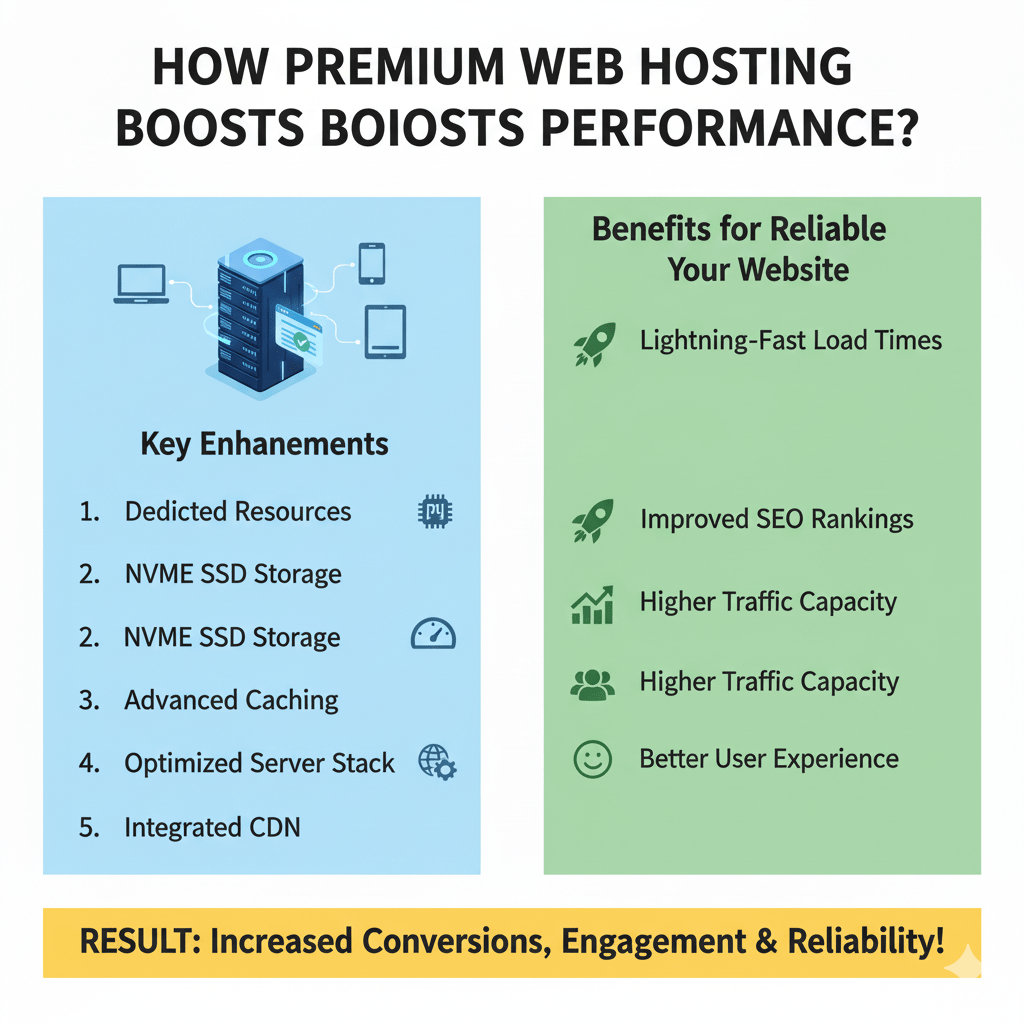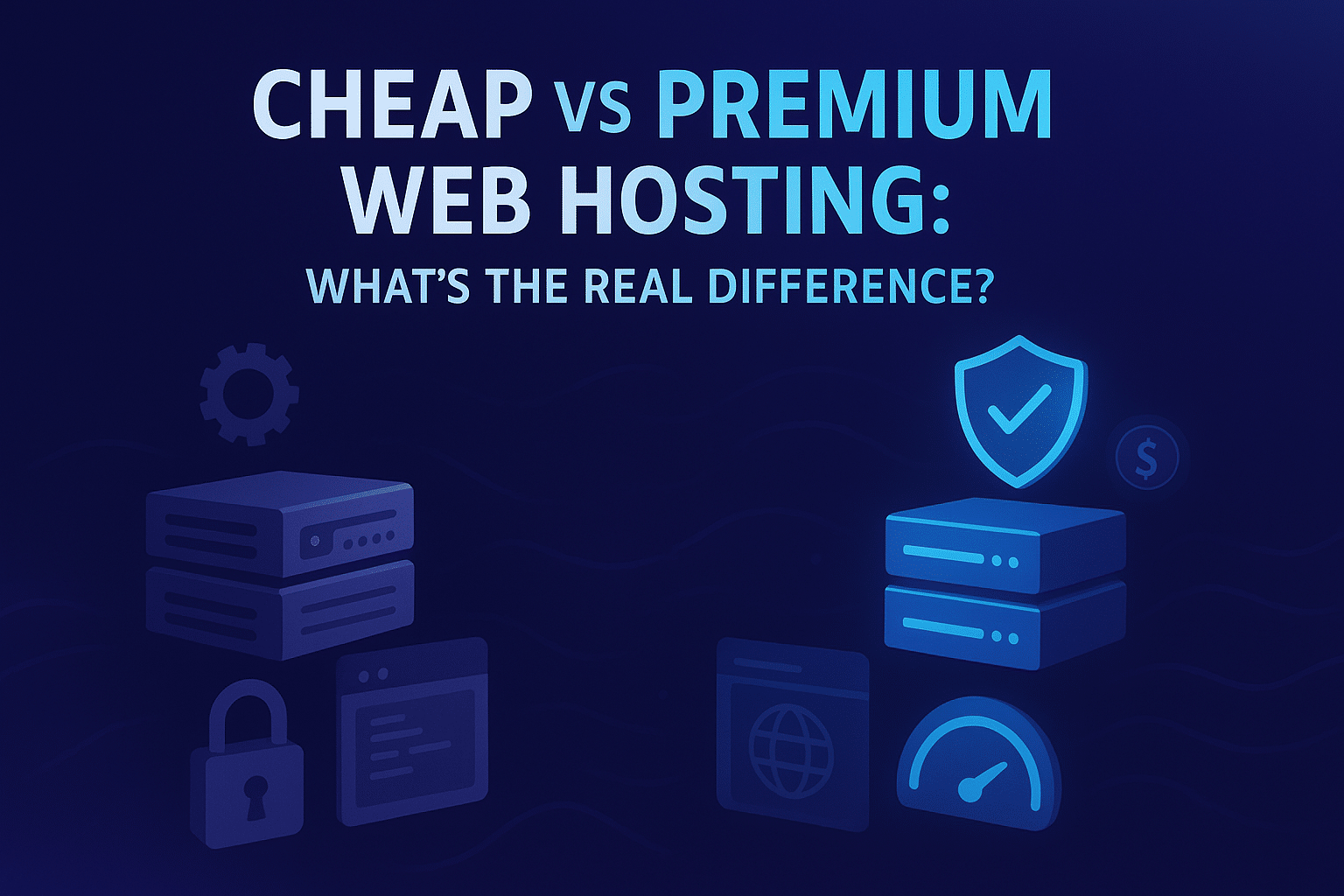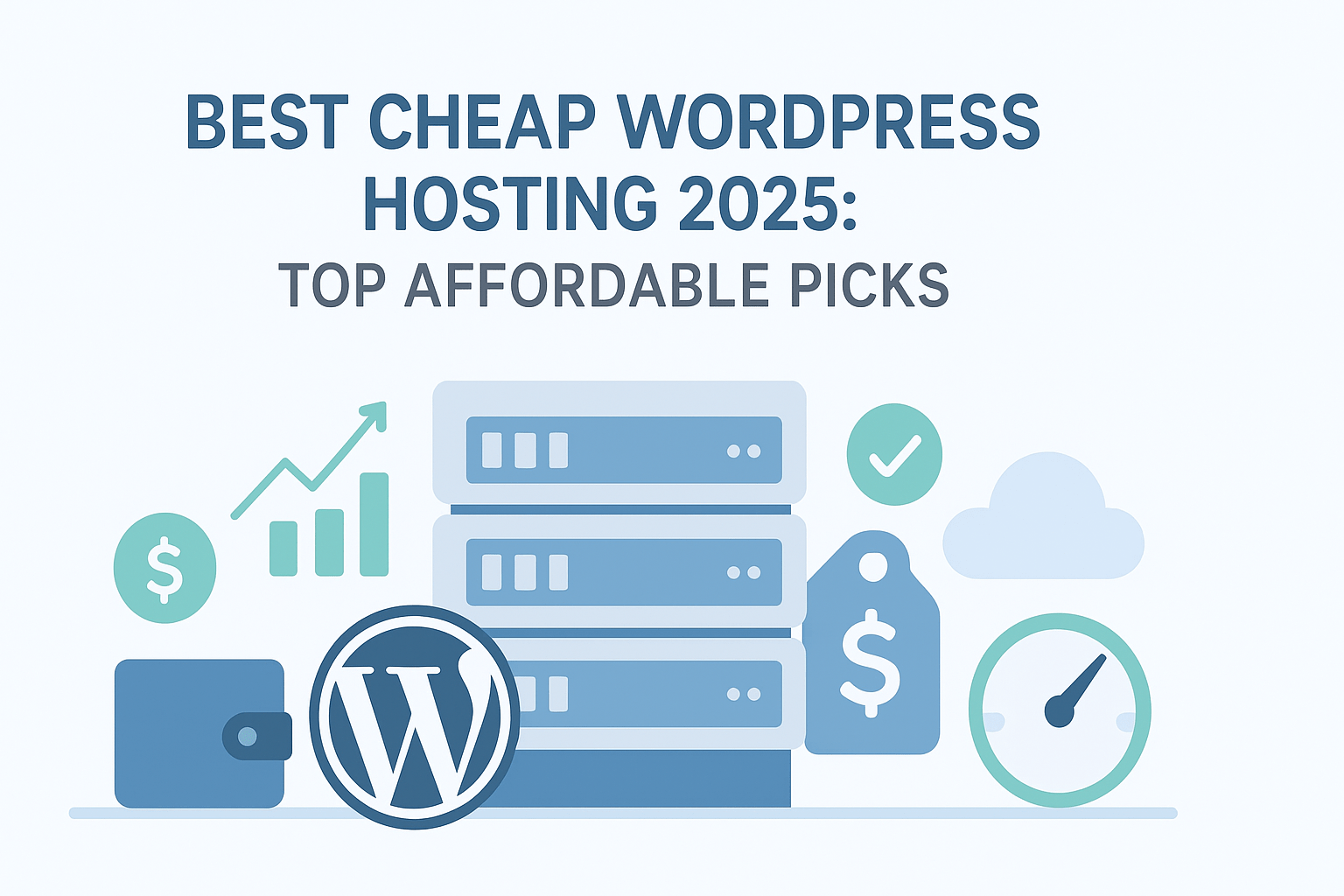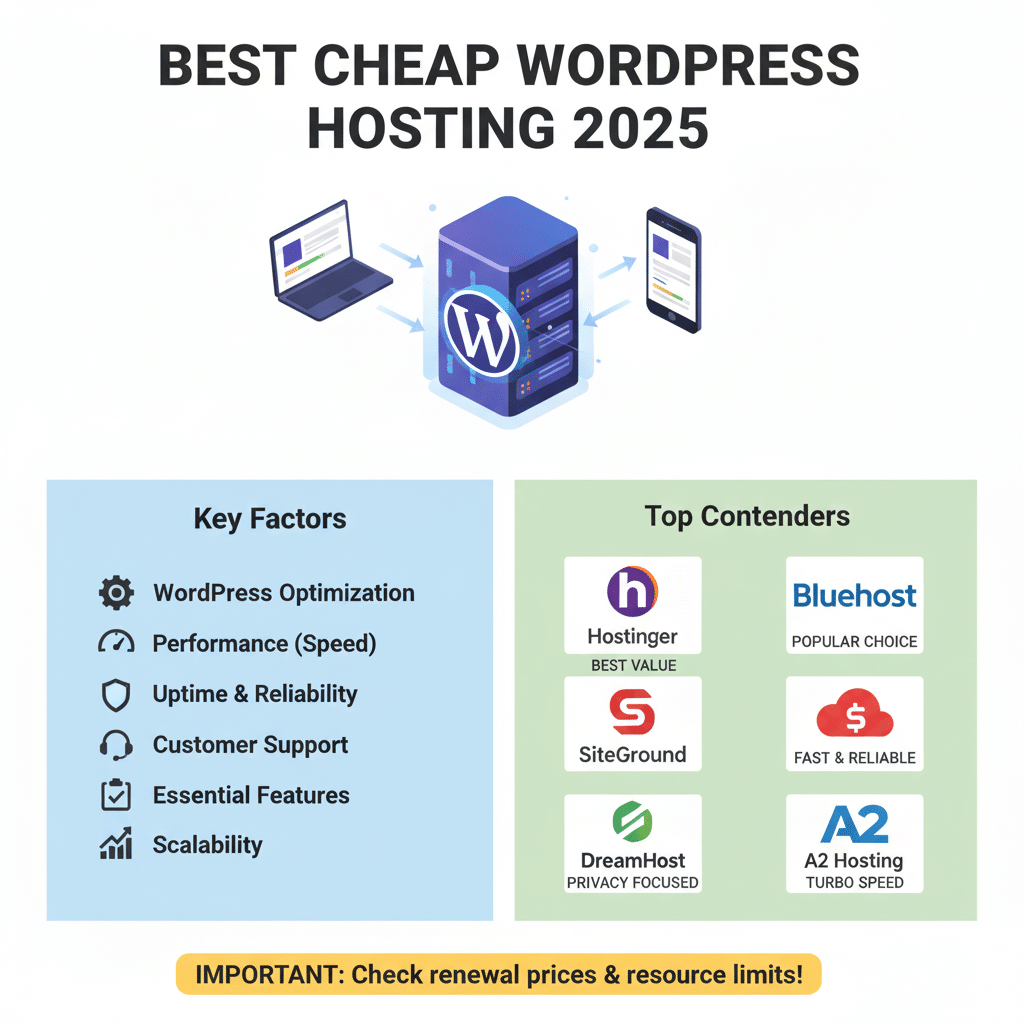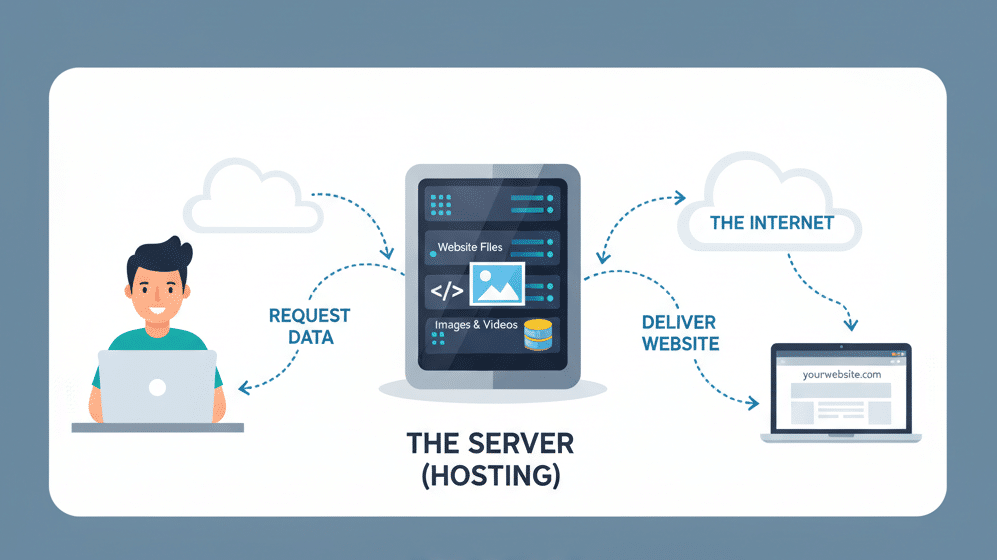Navigating the Future: Top Web Hosting Trends Businesses Must Master by 2025
Did you know that the global cloud computing market is projected to reach over $800 billion by 2025? This staggering growth underscores a critical truth: the digital landscape is evolving at an unprecedented pace. For businesses of all sizes, staying ahead of the curve in web infrastructure is no longer an option—it’s a necessity for survival and growth. As we rapidly approach 2025, understanding the top web hosting trends will be crucial for maintaining competitive advantage, ensuring peak performance, and securing your digital assets. This article dives deep into the transformative shifts shaping the future of web hosting, offering insights on what your business should prepare for.
1. The Rise of AI-Powered Hosting: Smarter, Faster, Predictive
Artificial Intelligence (AI) is no longer a futuristic concept; it’s rapidly becoming the backbone of next-generation web hosting. By 2025, expect AI to permeate every aspect of hosting, from resource allocation to security. The integration of AI capabilities is revolutionizing how servers manage traffic, predict outages, and optimize performance autonomously.
Businesses will benefit from:
- Predictive Scaling: AI algorithms will analyze traffic patterns and automatically scale resources up or down, ensuring optimal performance during peak loads and cost efficiency during low activity.
- Automated Resource Optimization: Machine learning tools will fine-tune configurations, caching, and query performance in real time, resulting in faster websites and reduced infrastructure waste.
- Enhanced Customer Support: Conversational AI and intelligent assistants will handle tier-1 support, reducing ticket backlogs and providing instant resolutions.
According to Gartner, by 2025, 30% of enterprise applications will use AI to improve operational efficiency. Clearly, AI will not just enhance hosting—it will redefine it.
2. Cloud-Native Infrastructure: The New Standard for Scalability
Traditional hosting models are being phased out as cloud-native architecture becomes the dominant paradigm. By leveraging microservices, containers, and Kubernetes, businesses can achieve unprecedented scalability, resilience, and deployment speed.
Why Cloud-Native Matters:
- Flexibility & Agility: Applications built on microservices can be updated or scaled independently, minimizing downtime and improving development velocity.
- Cost Efficiency: Cloud-native systems optimize resource usage automatically, ensuring you only pay for what you use.
- Vendor Independence: Multi-cloud strategies and container orchestration tools make it easier to move workloads between AWS, Azure, and Google Cloud.
As global businesses shift toward distributed architectures, cloud-native hosting is emerging as the cornerstone of digital transformation.
3. Edge Computing: Bringing Hosting Closer to the User
With the exponential growth of IoT devices, online gaming, and real-time applications, latency has become the new bottleneck. This is where edge computing steps in. Instead of relying on centralized data centers, edge hosting pushes data processing closer to the user’s location.
Benefits of Edge Hosting:
- Ultra-Low Latency: Deliver lightning-fast performance for applications like streaming, AR/VR, and online transactions.
- Improved Reliability: Reduce dependency on a single data center, minimizing risks of large-scale outages.
- Enhanced Data Privacy: Process sensitive data locally, aligning with global privacy regulations like GDPR.
By 2025, more than 50% of enterprise data is expected to be processed outside traditional cloud or data centers — making edge hosting an essential trend for the future.
4. Sustainable (Green) Hosting: The Eco-Friendly Imperative
As climate concerns rise, sustainability is becoming a decisive factor in business choices. Green hosting providers are leading the charge by adopting renewable energy, carbon-neutral operations, and energy-efficient server technology.
Why It Matters:
- Environmental Responsibility: Hosting accounts for nearly 2% of global carbon emissions — comparable to the aviation industry.
- Brand Reputation: Customers increasingly favor eco-conscious brands.
- Cost Savings: Efficient cooling and power optimization lower operational costs in the long term.
By investing in green hosting solutions, businesses can align profitability with environmental ethics — a trend that will only grow stronger through 2025 and beyond.
5. Enhanced Cybersecurity and Zero-Trust Architecture
As cyberattacks grow more sophisticated, web hosting security must evolve beyond firewalls and antivirus software. The zero-trust model — where no user or device is automatically trusted — is quickly becoming the security gold standard.
Key Security Advancements:
- AI-Driven Threat Detection: Systems that identify and neutralize anomalies before they cause damage.
- End-to-End Encryption: Protects data both in transit and at rest.
- Multi-Factor Authentication (MFA): Adds a critical layer of user verification for sensitive hosting dashboards.
A secure hosting environment is not just about protection — it’s about maintaining user trust and ensuring business continuity in a data-driven world.
6. Serverless Hosting: The Era of True On-Demand Computing
Serverless architecture is revolutionizing how developers deploy applications. Instead of maintaining dedicated servers, code runs automatically when triggered, and businesses pay only for execution time.
Advantages:
- Scalability on Autopilot: No need to manage server capacity — it scales dynamically.
- Reduced Maintenance: Developers can focus purely on code and innovation.
- Cost Efficiency: Perfect for startups and dynamic workloads.
By 2025, serverless platforms will be the preferred choice for modern web applications, offering unmatched flexibility and speed to market.
7. The Future Is Hybrid and Intelligent
The future of web hosting is hybrid — a blend of cloud, edge, and on-premises systems enhanced by AI. Businesses that adopt this flexible, intelligent approach will enjoy better performance, reliability, and adaptability.
🌐 Final Thoughts
By 2025, web hosting will no longer be just a technical decision — it will be a strategic differentiator. Companies that embrace AI-powered automation, cloud-native architecture, sustainable infrastructure, and robust security will be the ones leading the digital frontier.
Whether you’re a startup or an enterprise, now is the time to rethink your web hosting strategy — not just for scalability, but for innovation, security, and sustainability in an AI-driven era.

